Taliban willing to compromise, Afghan negotiators say
Senior Afghan peace negotiators believe the Taliban are willing to significantly soften past hardline ideologies.
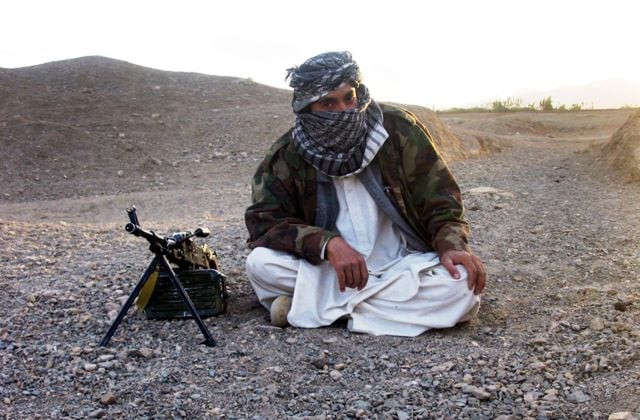
Former Taliban minister Maulvi Arsala Rahmani, a member of the High Peace Council set up by President Hamid Karzai two years ago to liaise with insurgents, said that after a decade of fighting with NATO, the Taliban were ready to moderate on reimposition of fundamentalist positions.
And despite the assassination only last September of former president and leader of the peace process Burhanuddin Rabbani, secret discussions that began in Germany in November 2010 between US, Taliban, German and Qatari representatives had a good chance of success, Rahmani said.
"The Taliban are not back to govern the same way as the old Islamic Emirate of Afghanistan. When they are back, they will be back as Afghans," Rahmani, a Taliban defector but with strong ties to the movement, said at his sparsely furnished home in a part of western Kabul heavily damaged during the country's bloody civil war.
"For Taliban members with the talent and skills, they will be election candidates for parliament, the presidency or the cabinet. The Taliban are not back to take over Afghanistan," he said.
Martine van Bijlert, of respected independent think-tank Afghanistan Analysts Network in Kabul, said no one could assume that talks with the Taliban would not work.
"But at the same time, we can't get ahead of ourselves," she said. "There seems to be a real chance at the moment. The high council has an interest in optimism of course, given their role in the process. But whether it can work is a fine balance. There is not an option not to try."
The Taliban announced this month that it would open a political office in Qatar to support possible peace talks with the United States and key allies, seen by backers like Rahmani as the best chance of reaching a ceasefire ahead of a withdrawal of foreign combat troops in 2014.
As a confidence-building measure, the group which ruled Afghanistan from 1996 until the US-led invasion of the country in late 2001 called for the release of five members being held at Guantanamo Bay, a US military enclave in Cuba.
Rahmani said preparations in Qatar were under way, with a team of senior aides to the Taliban leader Mullah Mohammad Omar already in Doha.
"I think the (Qatar) office is operational, but media are strictly banned," he said, looking frail with age and swathed in a heavy, fur-lined coat against the winter cold.
"People are already there like Shahabuddin Delawar (a former Taliban envoy to Saudi Arabia), Sher Mohammad Abbas Stanekzai (a former Taliban deputy foreign minister) and Tayeb Agha (said to be a close aid and former secretary to Mullah Omar)."
Talks could begin in weeks and Rahmani said he expected that junior Taliban fighters would accept any peace agreed by their leaders if negotiations with US and Afghan government officials proved ultimately successful.
"Those who fight on the field take their instruction from the leaders. The soldiers will not fight, or have someone else organise them and supply them. To say otherwise just looks like propaganda to me," he said.
Taliban split
But Mohammad Ismail Qasimyar, another peace council member and its adviser on foreign relations, said while he saw signs of moderation among the Taliban leadership, a peace deal had the potential to split junior members with more hardline views away from Taliban, possibly to continue a lower-level war.
"I would not dare to say all of the Taliban are thinking the same," said Qasimyar, appointed to the council of 62 men and eight women along with Rahmani in 2010.
"Some, especially the leadership, have changed hearts and minds. But the new recruits and younger ones, they are more ideological. I don't think they will change, but the majority will join the peace process," he said.
While a Qatar office for the Taliban was already a reality, Qasimyar said more had to be done before it could be called officially open. A Taliban spokesman told Reuters he could not comment on the progress of preparations.
And Qasimyar said Pakistan, seen by some political analysts as a possible disgruntled spoiler in the process because of its longstanding demand to have a big say in Afghanistan's future, had been quietly supportive, helping move Taliban named on a United Nations travel blacklist.
Pakistan, and its powerful military and intelligence service ISI, has consistently denied meddling in Afghanistan, but Islamabad had pushed for a Taliban office in the Turkish capital Ankara or Saudi Arabia's Riyadh, because of Pakistan's close ties with both countries.
Qasimyar said the Taliban had no choice but to compromise in a peace process he believed could be concluded "in a couple of years", embracing other insurgent groups as well as Afghan ethnic groups which fought brutal Taliban rule.
But Afghanistan could eventually emerge with a different shape of government, possibly with a stronger parliamentary system and less power in the hands of the presidency, he said.
"The constitutional system has to prevail," he said. "But if we all agree, and we all come into a peace agreement and we all come back to our country, all of us here, then we have to think about amendments to the constitution, amended through the machinery that is set up in the constitution."

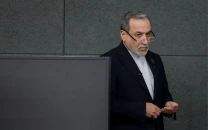
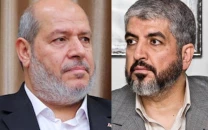


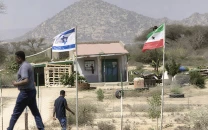
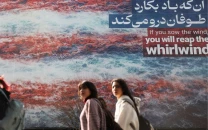












COMMENTS
Comments are moderated and generally will be posted if they are on-topic and not abusive.
For more information, please see our Comments FAQ